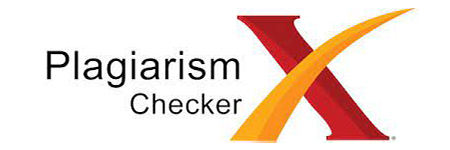The Role of Critical Thinking Skills in Enhancing Problem-Solving Abilities among High School Students
DOI:
https://doi.org/10.70716/jess.v2i1.191Keywords:
critical thinking skills, problem-solving abilities, high school students, cognitive development, educational strategiesAbstract
This study investigates the role of critical thinking skills in enhancing problem-solving abilities among high school students. As education increasingly emphasizes the development of higher-order cognitive processes, understanding the interplay between critical thinking and problem-solving becomes essential. Employing a mixed-methods approach, data were collected through standardized critical thinking assessments, problem-solving tasks, and in-depth interviews with students and educators across multiple high schools. The findings reveal a significant positive correlation between students' critical thinking proficiency and their effectiveness in addressing complex, real-world problems. Moreover, instructional strategies that explicitly foster critical thinking—such as inquiry-based learning, Socratic questioning, and reflective discussions—were found to significantly enhance students' problem-solving performance. These results suggest that integrating critical thinking skill development into the high school curriculum is vital for preparing students to navigate academic challenges and broader societal issues. Implications for pedagogical practices and future research directions are discussed.
Downloads
References
Abrami, P. C., Bernard, R. M., Borokhovski, E., Wade, A., Surkes, M., Tamim, R., & Zhang, D. (2015). Strategies for teaching students to think critically: A meta-analysis. Review of Educational Research, 85(2), 275–314. https://doi.org/10.3102/0034654314551063
Braun, V., & Clarke, V. (2006). Using thematic analysis in psychology. Qualitative Research in Psychology, 3(2), 77–101. https://doi.org/10.1191/1478088706qp063oa
Brookfield, S. D. (2012). Teaching for critical thinking: Tools and techniques to help students question their assumptions. Jossey-Bass.
Creswell, J. W., & Creswell, J. D. (2018). Research design: Qualitative, quantitative, and mixed methods approaches (5th ed.). Sage Publications.
Dweck, C. S. (2006). Mindset: The new psychology of success. Random House.
Ennis, R. H. (2011). The nature of critical thinking: An outline of critical thinking dispositions and abilities. University of Illinois.
Facione, P. A. (2011). Critical thinking: What it is and why it counts (2011 update). Insight Assessment.
Facione, P. A. (1990). Critical Thinking: A Statement of Expert Consensus for Purposes of Educational Assessment and Instruction. The Delphi Report. The California Academic Press.
Fisher, A. (2011). Critical thinking: An introduction (2nd ed.). Cambridge University Press.
Halpern, D. F. (2014). Thought and knowledge: An introduction to critical thinking (5th ed.). Psychology Press.
Heppner, P. P., & Petersen, C. H. (1982). The development and implications of a personal problem-solving inventory. Journal of Counseling Psychology, 29(1), 66–75. https://doi.org/10.1037/0022-0167.29.1.66
Hmelo-Silver, C. E. (2004). Problem-based learning: What and how do students learn. Educational Psychology Review, 16(3), 235–266.
Hyde, J. S. (2005). The gender similarities hypothesis. American Psychologist, 60(6), 581–592.
Kuhn, D. (2005). Education for thinking. Harvard University Press.
Lai, E. R. (2011). Critical thinking: A literature review. Pearson Research Report. Pearson.
Moon, J. A. (2013). Reflection and employability: Reflection on learning and reflective practices. Routledge.
Paul, R., & Elder, L. (2014). Critical thinking: Tools for taking charge of your professional and personal life (2nd ed.). Pearson Education.
Sirin, S. R. (2005). Socioeconomic status and academic achievement: A meta-analytic review of research. Review of Educational Research, 75(3), 417–453. https://doi.org/10.3102/00346543075003417
Vygotsky, L. S. (1978). Mind in society: The development of higher psychological processes. Harvard University Press.
Downloads
Published
How to Cite
Issue
Section
License
Copyright (c) 2025 Yuli Kusuma Dewi, Abdul Khalid, Abdilah Abqari Agam

This work is licensed under a Creative Commons Attribution-ShareAlike 4.0 International License.











